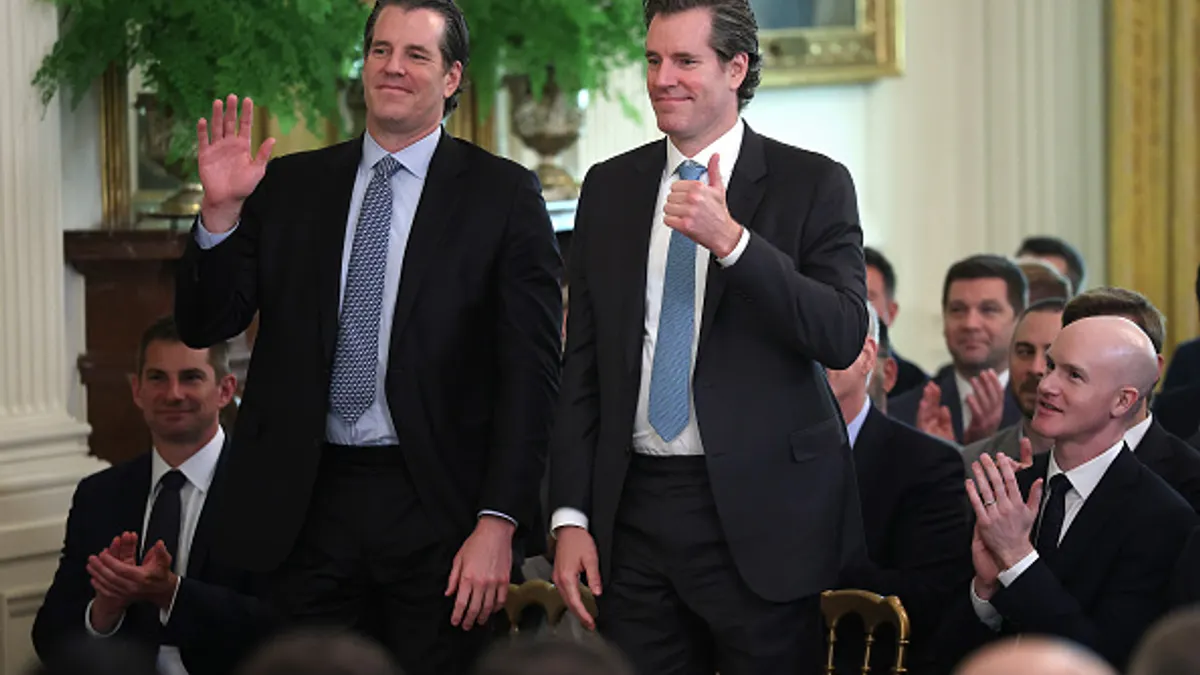The Financial Accounting Standards Board has averted political pressure to rescind income tax disclosure rules (Topic 740) issued in 2023, with the spending bill signed into law this week by President Donald Trump not including a provision tucked in an earlier proposal that threatened FASB funding if it did not withdraw the standard.
While FASB is an independent entity funded by accounting support fees paid by public companies, publishing revenue and investment income, a spending proposal released over the summer by House Republicans threatened to prevent the Securities and Exchange Commission from reviewing or approving FASB’s budget if the rule stayed in place.
Asked by a reporter during a wide-ranging press briefing Wednesday if there’s any possibility that the standard would be withdrawn should it come under serious pressure, FASB Chair Richard Jones did not explicitly rule out such an action but side-stepped the controversy and held firm to the standard-setter’s rule-making process.
“I can’t speculate, I can tell you we have that standard, it’s out, it’s issued, it’s effective and companies will be adopting it in this year’s year-end financials,” Jones said, noting too that the standard setting on the project is done but that the board is “always happy” to talk about the standards it sets and the reasons it sets them.
“I view that we have one role and one role only — it’s financial accounting reporting to facilitate the capital markets,” Jones said. “That’s what we focus on, that’s what we do but we’re always happy to engage with people about any concerns about our standards.”
FASB spokesperson Christine Klimek said in an email Thursday that the FASB has not recently received any formal request from lawmakers seeking to withdraw the income tax standards. Formal requests to change standards are typically handled through the board’s agenda request process.
Klimek also said SEC reviews FASB’s budget, after which the SEC issues an order “to the effect that the annual accounting support fee for the FASB is consistent with Section 109 of SOX.”
The income tax disclosure standards drew the spotlight again this year just as public companies are faced with their first year of compliance. But it’s not the first time it has sparked pushback.
Back in 2023, FASB got the new tax disclosure standards over the finish line despite some corporate and political opposition, with 15 Republican House members that year urging the board to withdraw the planned new requirements, asserting that the standard update could harm U.S. multinational companies “because their foreign competitors will have access to a greater level of detail on U.S. companies’ operations and tax strategies,” CFO Dive previously reported.
The new rules will require companies to break out much more information in their reports on the income taxes they pay. For example, firms will be required to report the jurisdictions — such as a country or state — that receive more than 5% of their total tax payments.
Neil Bass, a CPA and managing member at the Parsippany, New Jersey-based Bass Tax Group, said the odds are relatively low that the income tax proposal will continue to be debated when the next government spending bill comes up in 2026. In the meantime, Bass said his advice would be for CFOs and companies to assume the new disclosure rules will stay in place.
“It is going to be a decent amount of work in the first year of implementation,” Bass said, adding that much of the information is already available to companies and just needs to be gathered and collated.
More broadly, the issue has raised concerns about FASB’s independence. Jack Castonguay, an associate professor of accounting at Hofstra University in New York, said the most recent similar political fight he could recall occurred in the early 2000s when many in Congress did not want the FASB to update standards requiring companies to record stock options granted to employees as an expense at fair value on the income statement. But he characterized the current political threat to FASB as “unprecedented.”
“I’m concerned that it fits a growing trend from this Congress and the Trump Administration to politicize capital market institutions that have largely been insulated from direct political pressure in a way that threatens their independence and ability to make decisions, standards, and rules that meet the needs of markets and not the needs of politicians and their donors,” Castonguay said in an email.
Thomas Georges, policy and communications officer at the nonprofit Financial Accountability and Corporate Transparency Coalition which works to combat money laundering, tax evasion and financial secrecy, also said FASB's role in shaping those disclosures should remain free from political interference.
However, he said given that the new disclosures stemming from the income tax standards will be being released as early as January or February of next year, he does not expect the standard to face continuing attacks. “Companies are already in the process of complying with the new standards, and once the first round of disclosures is out, I doubt that there will be appetite to revisit the no-funds rider,” Georges said.






















